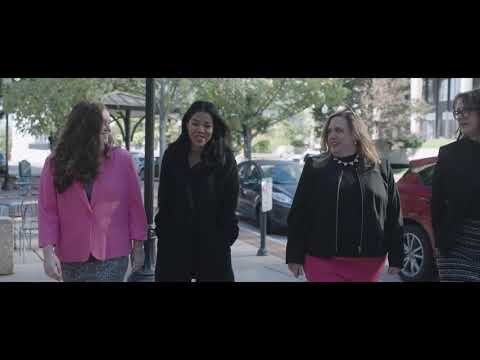How to Navigate Custody Agreements During a Pandemic

How to Navigate Custody Agreements During a Pandemic
COVID-19 has wreaked havoc on our world and overwhelmed hospitals around the globe. This global pandemic has disrupted our economy and changed the way we each live our daily lives. In order to slow the spread of the virus, many states and municipalities have issued “shelter in place” or “stay at home” orders. These orders restrict the movement of citizens except for essential travel. Even in Alabama, non-essential businesses have been closed until April 17th. However, these orders typically have exceptions for complying with legal obligations. Therefore, it is likely that except in rare circumstances, custody orders should be followed. However, parents are always encouraged to vary from court-ordered visitation schedules when they can mutually agree to do so for the best interests of their children. Situations like this present parents with opportunities to put their differences aside and work for the best interests of their children. A loving, caring parent would never want to place a child in harm’s way for the sake of their own selfish needs. As such, during this time, consider the following options for working together to protect your children during this pandemic:
- Considering altering schedules to allow the child to remain in the home where he or she is least likely to be exposed to COVID-19 even if it means that the child will reside with the non-custodial parent for a period of time or the non-custodial parent will miss his or her visitation for a period of time. If such an alteration is agreed upon, the parents should reach a written agreement regarding the change in time-sharing and determine how missed time will be made up when the pandemic is over.
- If parents are going to continue to follow current schedules or cannot agree to alter the current custody arrangement, parents should discuss precautions each will take to protect the child from potential exposure to the virus. If either parent or another household member is exposed to COVID-19 or begins showing symptoms of COVID-19, the child’s exposure to that person should be limited.
- If your child begins to experience symptoms of COVID-19, both parents should be informed of any doctor’s appointments that are scheduled or any testing that is conducted and each person who has been around the child in the last fourteen days should seek medical advice from a medical professional regarding whether or not he or she should be tested.
- If your child is hospitalized for any reason, COVID-19-related or not, both parents should be listed as emergency contacts for the child at the hospital. Current restrictions may prevent either or both parents from being able to be present with the child at the hospital. Can you imagine how terrifying it would be to not only not be able to see your child in the hospital but to also be unable to receive any information from hospital staff? You would not want to be the parent who is left out; so, don’t leave the other parent out either.
- Consider not exchanging clothes, backpacks, toys, or other items during this time in order to reduce the likelihood of exposure. Again, if your order requires the exchange of such items, make sure you and the other parent have a mutual agreement to limit these exchanges during the pandemic.
- Keep open lines of communication between you and your child’s other parent. While this should be a “no-brainer” all the time, it is often the exception rather than the rule. During situations like this, it is even more important that both parents have calm and rational discussions with each other regarding the care and upbringing of their children.
- So long as it is available to you in any form, allow the other parent, grandparents, and other family members to have access to the child via video chat. For young children especially, daily contact with both parents is important to help form appropriate bonds. When daily contact is not possible due to distance, custody schedules, or pandemics, video chatting can be used as a way to allow the child to at least see the child on a daily basis.
- Both parents should reevaluate his or her own daily activities to determine what each of them can do to slow the spread of COVID-19 and flatten the curve. If you are continuing to exchange custody and visitation according to the court-ordered or agreed-upon schedules, try to make your grocery store trips during periods when your child is with the other parent, wash your hands frequently, and keep your hand off your face.
- Speaking of keeping your hand off your face, children love to put their hands all over their faces. They rub their eyes, suck their thumbs, put their hair in their mouths, and the like. Try creating a handwashing game or song that they enjoy. For preschoolers, try having them learn to sing their ABC’s while washing their hands or another song they enjoy like “Jesus Loves Me,” “Jesus Loves the Little Children,” “B-I-N-G-O,” or “Baa Baa Black Sheep.” For older children, let them pick their favorite song and teach it to you while you both wash your hands. Instead of punishing your children for touching their faces, agree upon a funny word each of you can use to alert the other or implement other positive reinforcement techniques to encourage them to keep their hands off their faces.
- Remember, your kids are also struggling with the loss of their normal lives. They cannot go to school, play sports, or hang out with their friends. They are grieving their old way of life. Be empathetic to their struggle, put the phone down, turn off Netflix and go outside. Take a walk, go on a hike, play ball with your children, have a dance party among your family members, play charades, play board games, or work on a home improvement project with your kids. Also, remember to keep their minds active by reading and completing online schoolwork. These things should be done at both houses if parents are still exchanging custody and visitation. If that is not possible or the parents have agreed to not exchange custody or visitation in order to protect the child, parents should find ways to allow the excluded parent and the child to engage in fun online activities with each other like online video games, taking the parent on a walk by using video chatting options while walking or hiking, having the child and parent read together on video chat, or work on homework together. Technology for all its faults can allow people to feel close when they have to be far away.
Get Help From a Child Custody Lawyer in Huntsville
If you find that you cannot reach an agreement with your child’s other parent and want the help of an un-biased third party, mediators and parenting coordinators can be great resources to help you and your fellow co-parent reach amicable resolutions to conflicts about parenting decision whether those conflicts arise during this pandemic or otherwise. While mediators and parenting coordinators are not inexpensive, they can help you possibly avoid even more costly attorneys’ fees and court costs in the event one parent or the other decides to file a court action. The most important things to remember during this time are to keep your cool, don’t panic, wash your hands, and most importantly, put your children first. This pandemic will eventually end. You can come out on the other side as a better and stronger co-parenting unit for your children, or you can drive a bigger wedge between you and your children’s other parent. The choice is yours.
Site Map | Disclaimer | Privacy Policy |
Disclaimer: No communication concerning a lawyer's services shall be published or broadcast, unless it contains the following language, which shall be clearly legible or audible, as the case may be: “No representation is made that the quality of the legal services to be performed is greater than the quality of legal services performed by other lawyers.
© 2026. New Beginnings Family Law. All Rights Reserved





